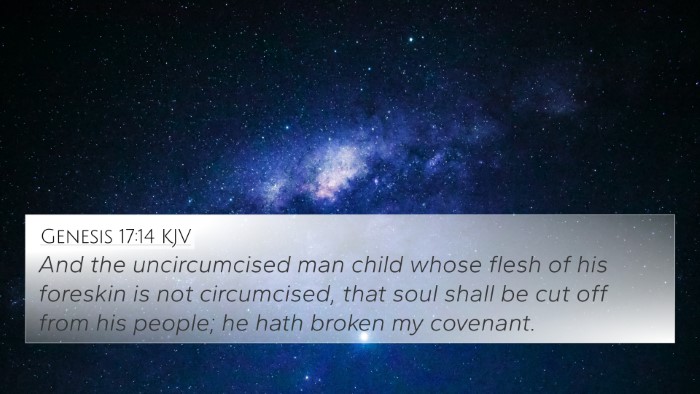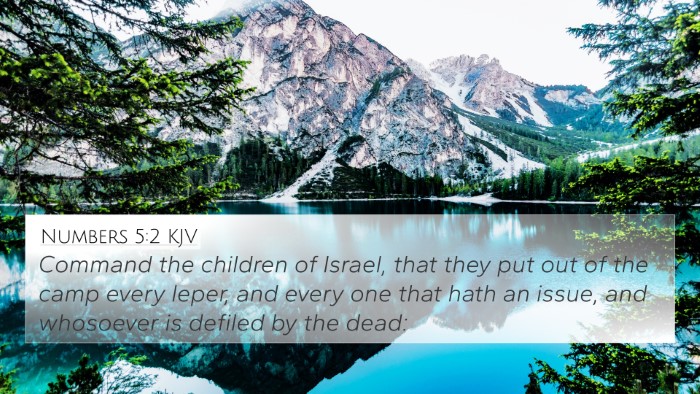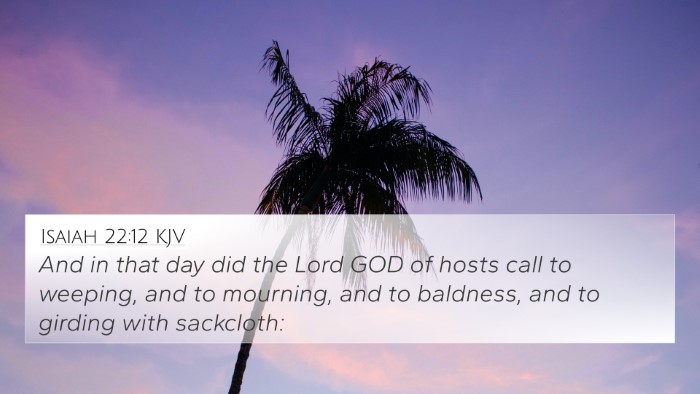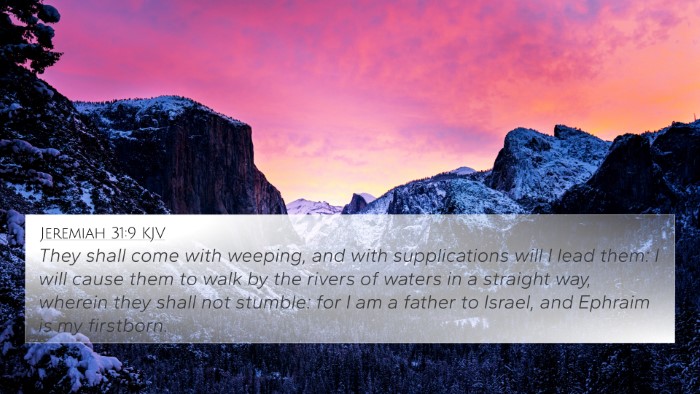Understanding Leviticus 23:29
Leviticus 23:29 states, "For any person who is not afflicted in soul on that same day shall be cut off from his people." This verse is part of the instructions concerning the Day of Atonement, emphasizing the importance of self-examination and repentance.
Significance of Leviticus 23:29
This verse highlights the spiritual necessity of humbling oneself and afflicting the soul as a sign of repentance and acknowledgement of sin. It underscores the theme of atonement and the seriousness of one’s relationship with God.
Insights from Commentaries
-
Matthew Henry:
Henry emphasizes that the Day of Atonement was a time for Israel to reflect deeply on their sins and relationships with God. The idea of being cut off signifies the serious consequences of neglecting one's spiritual obligations.
-
Albert Barnes:
Barnes points out that being "cut off" implies spiritual destitution, highlighting the need for sincere repentance. He also stresses the communal aspect of sin—reminding that individual actions affect the community.
-
Adam Clarke:
Clarke elaborates on the necessity of being afflicted in soul, equating it to genuine remorse and the importance of approaching God with humility. The phrase suggests that true worship begins with an acknowledgment of one's faults.
Bible Verse Cross-References
This verse connects with several other verses in the Bible that illustrate similar themes of repentance, atonement, and the consequences of sin. Here are some notable references:
- Leviticus 16:30: This verse also deals with atonement and emphasizes the cleansing from sin.
- Isaiah 58:5: Discusses true fasting and humbling oneself before God.
- Matthew 5:23-24: Jesus speaks on reconciling with others before offerings, which reflects true repentance.
- James 4:10: "Humble yourselves before the Lord, and he will lift you up," echoing the call for humility before God.
- Romans 8:13: Highlights the importance of putting to death the deeds of the body through the Spirit.
- 2 Chronicles 7:14: "If my people, who are called by my name, will humble themselves and pray..." emphasizes the necessity of humility and prayer in turning back to God.
- Psalm 51:17: David expresses that a broken spirit and a contrite heart are what God desires, aligning with the theme of affliction of soul in repentance.
Thematic Bible Verse Connections
When studying Leviticus 23:29, it is beneficial to explore the broader themes of the Bible, particularly those involving repentance, atonement, and spiritual sincerity.
- Connections to Repentance: Cross-references can be drawn between this verse and the call for God’s people to turn from their sins across both the Old and New Testaments.
- The Concept of Atonement: The significance of atonement is prevalent in Leviticus and the New Testament, particularly in the work of Christ.
- Humility Before God: The verses collectively highlight the necessity of approaching God with humility, establishing a clear link between personal conduct and divine acceptance.
Cross-Referencing Biblical Texts
When approaching textual study of Leviticus 23:29, tools for Bible cross-referencing could enhance understanding. Consider the following:
- Using a Bible concordance to find related verses across various contexts in Scripture.
- Employing a Bible cross-reference guide to dive deeper into the connections between verses.
- Implementing cross-reference Bible study techniques during personal or group study sessions.
- Exploring cross-referencing Bible study methods to grasp the thematic relationships more clearly.
Conclusion
Leviticus 23:29 not only addresses the necessity for personal reflection and repentance but also illustrates how these ideas are interconnected within the larger biblical narrative. By utilizing cross-references, one can witness the profound dialogue between the texts that formulate a complete picture of God’s call to his people for humility and atonement.









